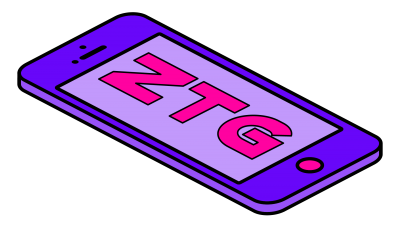It’s no secret that I am very attracted to the MateView when I got to know about it. The first time I saw it was during a Huawei press event in China (bear in mind it was not even confirmed for Malaysia at that time) and I was already excited for it. Needless to say, when Zen said I got to review it, I was bent on testing the heck out of this monitor because I’m a photographer who cares about color accuracy and also happen to be a clean desktop setup fanatic. The MateView is destined to be a stylish centerpiece of a productivity setup.
The Specs
| Resolution | 3840 x 2560 (4K) | 3:2 |
| Size | 28.2 “ |
| Panel Type | IPS |
| VESA mount | n/a |
| Adjustments | Height only |
| Speakers | Yes |
| Input | 1x Fully-functioning USB Type C (Max 20V/3.25A) 2x USB-A 3.2 Gen 1 (Max 5V/1A) 1X Type C for power 1x 3.5mm microphone jack 1x HDMI 1x MiniDP |
| Weight | 6.2 KG (thicc) |
The Panel

Let’s start with the size. It’s 28″ because of the 3:2 aspect ratio commonly found in design productivity-centric monitors. As a person who is used to 3:2, this was a familiar experience but if you’re coming from 16:9 to do work, you will pretty much immediately notice the extra space from the monitor being taller. Viewing web pages, typing documents and video/photo editing all benefit from the extra screen space. Couldn’t hate it if I wanted to.
At the 27-32″ size range for monitors, it’s conventional wisdom that 1440p is enough but Huawei went above by slapping a 4K panel in the Mateview, resulting in a 164ppi density. The outcome was everything looking sharp and crispy. I couldn’t even spot a pixel if I wanted too, and it’s honestly hard to go back to a lower resolution after experiencing it. Latency is pretty good too, you can use it for light gaming and it still won’t be as bad as a “3ms” VA panel, as the response time is very good even for a 60Hz IPS panel.
Design
It’s so hard to avoid using the word “minimalist” to describe it but the Mateview in its very essence, i just a minimalist design. The bezels are incredibly thin, just like the panel. Honestly this is one of the thinnest panels I have seen in recent years. The Mateview is completely wrapped in Huawei’s Mystic Silver used in their other computer products (Like the MateBook D14 we’re reviewing), so they all match nicely. The on-screen-controls are all handled by a touch slider under the monitor’s thin chin.
Now, the reason why the monitor panel is so thin is because all the functionality is shifted to the stand. The stand is wide but thin, with the base being NFC enabled for projector mode. Yes, this monitor is capable of being a wireless windows display as well as a wireless phone display when paired with the Huawei Mobile app. It can do full 4k resolution, but at the expense of latency. It’s definitely not suitable for even light gaming but watching videos or giving presentations will be fine.
On the front is a mesh grille that has the speakers and microphone in it. At the rear you get a type-c port (YES), a miniDP and HDMI port for input (the box includes a DP to miniDP cable). On the right side you get a fully functional type c port, two type a 3.2 gen1 ports, a microphone jack and a power button which definitely comes from a phone. Only downside here is that the stand can is only height adjustable, nothing else can be done and no VESA mount available because all the power and I/O relies on the stand.
Color accuracy

This part is for the nerds only, feel free to skip it.
Huawei says the Mateview does 98% of DCI-P3 at Delta E <2, so did Huawei lie here? No, not within the margin of error at least. Factory calibration was off for sure with too much emphasis on reds but still well within Delta E of less than 2.
If you’re a serious professional, monitor calibration is a must and this is a non-negotiable ordeal, so needless to say we used a Datacolor Spyder 5 Pro to test the monitor using Displaycal so here are the results at 6500k 120cdm settings.
| SRGB | 99.9% |
| AdobeRGB | 86.4% |
| DCI-P3 | 96.2% |
No complaints here from me in the color department. 96% of DCI-P3 is plenty to work with, and I would happily trade of the last bits of gamut coverage for a stylish monitor such as this. Thick panels and bezels with 5 digit price tags are not my thing, so I’d be perfectly content with daily driving this for creative work only.
So who is this for ?
The Mateview is clearly aimed at creative professionals who want a stylish monitor that is capable of near-complete DCI-P3 coverage. At the preorder price tag of RM2,988 I think it’s a really good price for the centerpiece of your modern sleek workspace setup. If you have no intentions of using a monitor arm and gaming, this is a very compelling offer.








